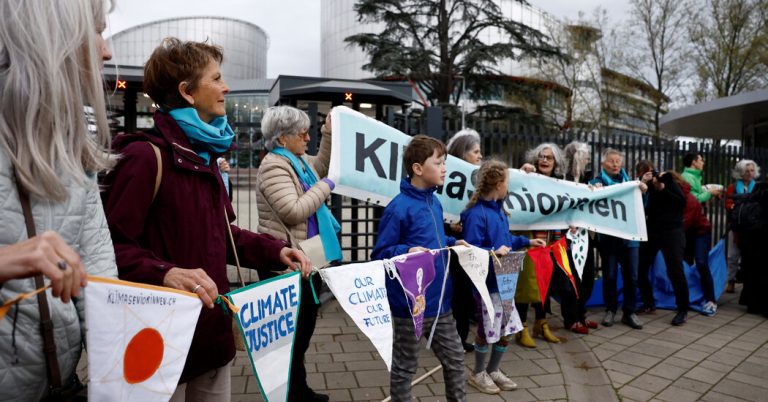Europe’s top human rights court said in a landmark ruling on Tuesday that the Swiss government violated the human rights of its citizens by not doing enough to stop climate change.
However, the court rejected climate cases brought by the former mayor of a coastal town in France and a group of young people in Portugal as inadmissible.
The cases, the first of their kind to be heard at the court, the European Court of Human Rights in Strasbourg, France, are part of a wider movement of climate-related lawsuits aimed at using human rights law to push governments to act against global warming.
The rulings centered on three cases, brought by members of the public in France, Portugal and Switzerland who argued that their governments, by not doing enough to mitigate climate change, were violating citizens’ rights under the European Convention Of human rights.
The court “had effectively said that Switzerland has not met its climate targets, it has breached its rights under the European Convention on Human Rights,” said Annalisa Savaresi, a professor of environmental law at the University of Stirling in Scotland.
National courts will closely monitor the decision, he said. “That’s huge.”
Older women vs Switzerland
A group of Swiss women aged 64 and over — known as KlimaSeniorinnen, or Senior Women for Climate Protection — argued in their lawsuit that the Swiss government’s failure to reduce greenhouse emissions enough to stop global warming violated their rights to life and autonomy.
With heat waves sweeping through Switzerland in recent summers and elderly women particularly vulnerable to heat-related illnesses, litigants said the government had not done enough to protect them in their final decades. The Swiss government argues that human rights law does not apply to climate change and that tackling it should be a political process.
Mayor v. France
A second case centers on a complaint by Damien Carême, former mayor of Grande-Synthe, a town on the Channel coast, that France has not taken sufficient measures to prevent global warming, thus putting the town at risk.
Mr Carême, who was mayor of the city from 2001 to 2019 and is now a member of the European Parliament for France’s Green party, argued that this failure violated the right to life, which is enshrined in European law. The city of Grande-Synthe is expected to be particularly affected as it faces an increased risk of flooding in the coming decades due to climate change.
Portuguese youth against 33 countries
Six Portuguese youth born between 1999 and 2012 argued in a third case that the current and future effects of climate change – including heatwaves, fires and smoke from those flames – are affecting their lives, well-being and mental health. They accused 33 countries that signed the Paris Climate Agreement in the region of not living up to their commitments to reduce greenhouse emissions.




